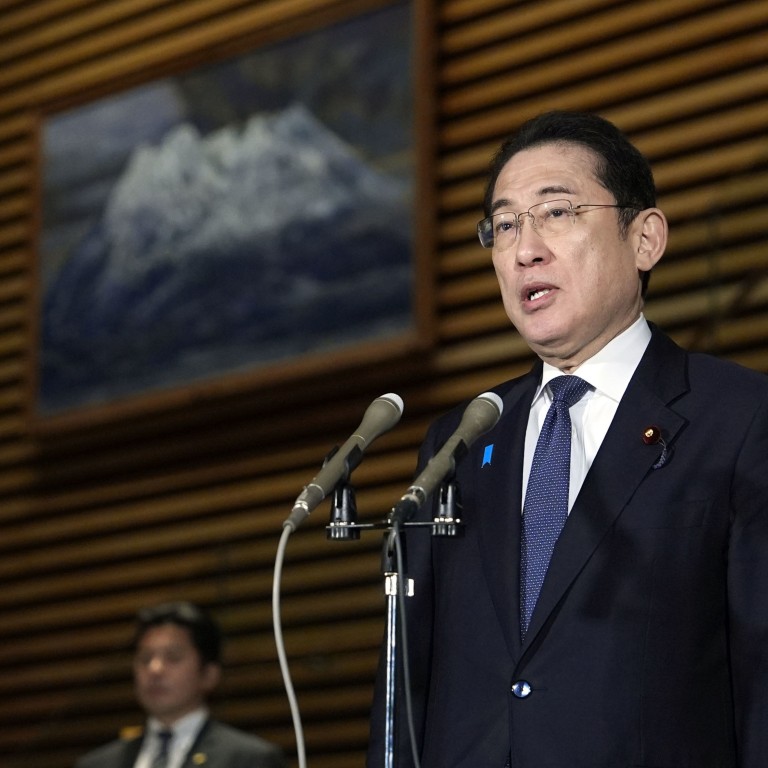
Japan to allow export of fighter jets co-developed with Britain and Italy, under ‘strict’ conditions
- The destination of fighter jet exports will be limited to countries that have signed a deal with Japan on defence equipment and technology transfers
- Japan will also relax its stringent restrictions on weapons exports through cabinet approval, with each export case requiring approval by the cabinet
The destination of fighter jet exports will be limited to countries that have signed a deal with Japan on defence equipment and technology transfers, Kishida said at a parliamentary session. Currently, 15 nations have such an agreement with Tokyo.
Kishida also said his government will relax Japan’s stringent restrictions on weapons exports through cabinet approval. He added that in the future, each individual export case will require approval by the cabinet.
Japan’s record arms spending will require ‘controversial’ taxes, welfare cuts
The jets “will never be transferred to a country where combat is taking place as part of an armed conflict”, he said.
Kishida’s remarks came as his ruling Liberal Democratic Party aims to agree with its junior coalition partner the Komeito Party, known for its dovish position on security policy and caution about weapons exports, on easing the strict transfer rules.
Komeito had demanded that some limitations be placed on the export of weapons so that Japan does not sell them indiscriminately. The ruling parties are likely to reach a broad agreement on the issue by the end of this week, according to sources close to the matter.
Japanese Defence Minister Minoru Kihara said discussions with the two European nations on the project of jointly developing the fighter jet by 2035, announced in late 2022, are expected to begin later this month.
Under its war-renouncing Constitution, Japan has maintained stringent regulations on the export of weapons jointly developed with foreign countries to third nations.
On Wednesday, meanwhile, Kishida said it is “important to hold a meeting” with North Korean leader Kim Jong-un to resolve the long-standing issue of Pyongyang’s past abductions of Japanese nationals in the 1970s and 1980s.
Kim Jong-un’s powerful sister offers rare olive branch to Japan
Kishida has expressed his eagerness for a summit with Kim to address the issue, as Kim’s sister hinted at the possibility of a visit to Pyongyang by the Japanese prime minister.
In a statement made in February by North Korea’s state-run media, Kim’s sister said that a visit could happen if Japan does not make the abduction issue an obstacle, describing it as “settled”.
Japanese chief cabinet secretary Yoshimasa Hayashi said her statement regarding the abductions was “totally unacceptable”.

